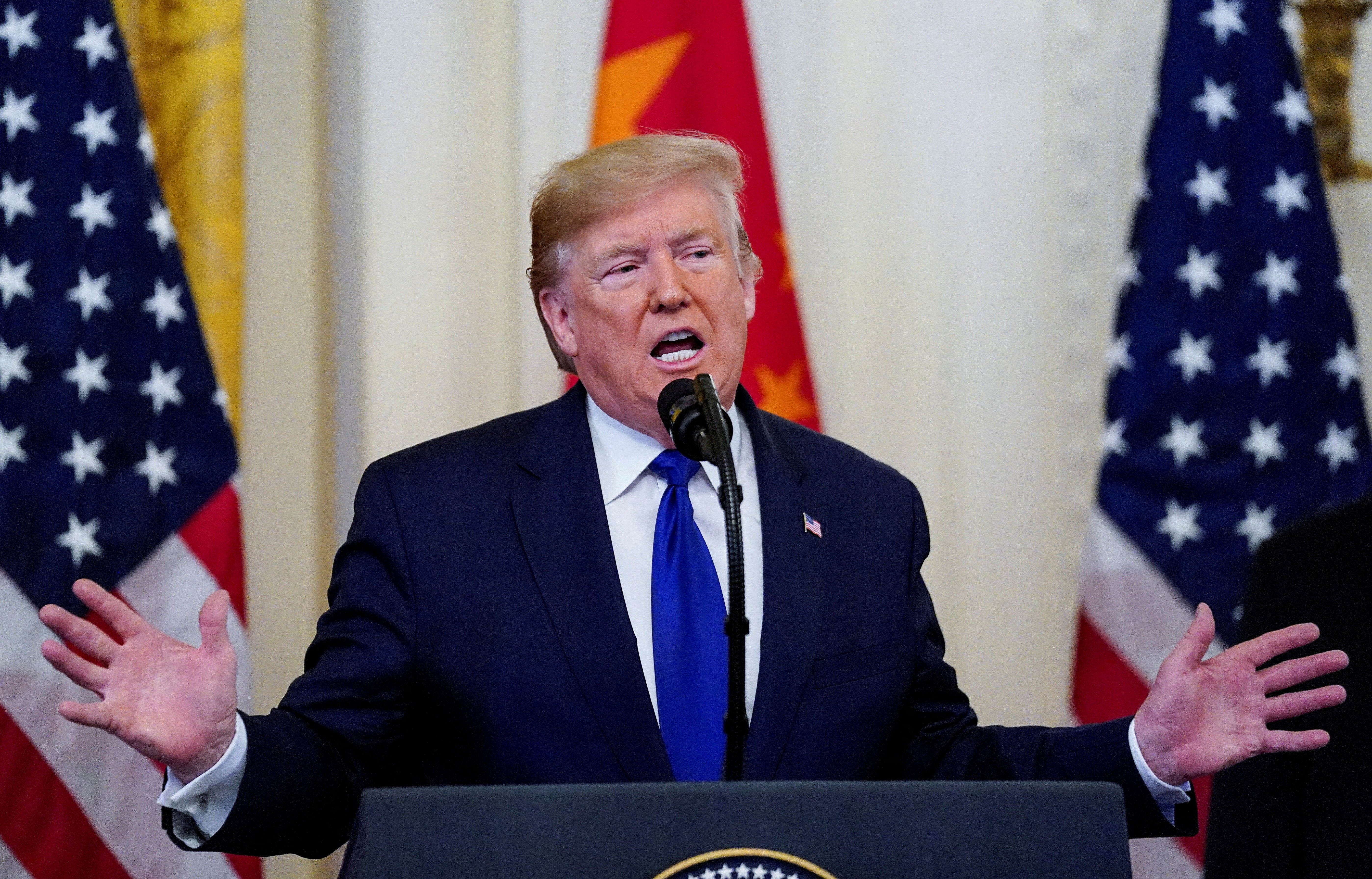Following talks in London on Sunday and Monday, the United States and China reached what President Trump called a “deal.” More precisely, as China’s trade representative Li Chenggang put it, the two sides agreed “in principle” to “a framework” that might actually “implement the agreements” the two sides reached last week and last month.
This caution among Chinese negotiators reflects the tortuous path they have traveled to simply begin discussions with the Trump administration. The lessons from that experience might now stabilize the course of U.S.–China diplomacy, but perilous obstacles remain.
The London agreement takes the two sides back to where they were on May 12, at the conclusion of the talks in Geneva that represented the first meaningful diplomatic exchange between the U.S. and China under Trump. The Geneva agreement paused the quasi-embargo the two sides had imposed on each other in April and established a structure for trade negotiations. But it fell apart the next day when Trump’s Commerce Department imposed damaging new measures against China’s most successful multinational company, Huawei.
Additional hostile moves from Trump followed, including both economic restrictions and the announcement that the administration would “aggressively” revoke the visas of Chinese students studying in the U.S. In response, China delayed its promised release of rare earth exports, leading to shortages among major U.S. corporations.
The substance of the London agreement seems to be that both sides will curtail their post-Geneva attacks. The details have not been made public, but China will reportedly permit its rare earth export licensing system to start moving and the U.S. will ease its recent economic restrictions. Trump also indicated that the threats against Chinese students will be suspended. As I argued prior to the talks, though Trump’s aides often see anti-China measures as desirable in their own right, Trump sees them as leverage to be abandoned if they succeed in squeezing concessions from the other side.
Notably, the rare earth export licenses China plans to issue will have a limited validity of six months. This reflects two consequential lessons Beijing has taken from the last six months attempting to deal with Trump.
First, coercive measures are necessary. For months prior to “liberation day,” Beijing sought to open negotiations, suggesting a range of issues on which China could offer concessions and seeking to establish an interlocutor with a reliable line to Trump. Instead, Trump hit China with a 10 percent tariff increase in February and another 10 percent increase in March. Trump claimed the tariffs were punishment for inadequate Chinese efforts to suppress the shipment of chemicals used in manufacturing fentanyl.
Chinese leaders resented this rationale since they had already begun joint efforts with the Biden administration on fentanyl. Nonetheless, Beijing declined sharp retaliation. In both February and March, it instead offered new proposals meant to address Trump’s stated concerns on fentanyl and designed to get discussions going. The administration declined to respond to both proposals.
When Wang Yi — the top foreign policy official in both the Foreign Ministry and the Chinese Communist Party — was in New York to chair a U.N. Security Council meeting in mid-February, China sought a meeting with either Secretary of State Marco Rubio or then-national security adviser Mike Waltz. Washington refused, saying Wang is not powerful enough and demanding instead a meeting with Xi Jinping’s close aide Cai Qi.
With liberation day, Beijing abandoned this solicitous approach and instead retaliated with equivalent tariff increases as well as non-tariff measures like the rare earths export licensing system.
Trump was furious, posting: “CHINA PLAYED IT WRONG, THEY PANICKED - THE ONE THING THEY CANNOT AFFORD TO DO!” But as the trade war spun out of control, it was Trump who soon started looking nervous, insisting that Xi Jinping would be the one to call him to de-escalate the situation.
In the end, the two sides managed to convene the Geneva talks and step back from the abyss without ever revealing who had called whom first. But the lesson was clear: Trump finally agreed to talk only after China defied him and imposed some real pain.
The second lesson is more specific: Beijing’s ability to restrict the export of rare earth elements gives it tremendous leverage over Trump. The dogged insistence of Trump’s negotiators at Geneva that He Lifeng agree to loosen the restrictions and Trump’s own desperation as the restrictions started to bite unmistakably communicate the power China now wields.
Trump’s unresponsiveness to Beijing’s initial outreach and then his decision to launch into a confrontation without adequate preparation have thus left U.S. vulnerabilities exposed and seemingly place the U.S. at a disadvantage in future talks. But one unexpected outcome of this predicament might actually be productive discussions.
After all, China’s actions and statements indicate a persistent if frustrated desire to pursue an agreement to reduce tensions in the relationship. The stumbling block has been Trump’s mercurial impulses and destabilizing search for leverage over China. If China exercises its advantage with restraint — using it to keep the U.S. at the negotiating table rather than to exact concessions — it might finally find its way past those obstacles. Perhaps Trump’s own awareness of vulnerability will encourage him to allow serious talks to proceed. Confrontation is unlikely to satisfy his desire to exert strength, but wringing a good deal out of Beijing still could.
Yet underlying geopolitical tensions could fatally threaten such hopes. In particular, Trump’s Pentagon has been issuing foreboding indications of coming conflict. In recent weeks Defense Secretary Pete Hegseth has made a number of overwrought statements hyping the idea that China could soon invade Taiwan. A leaked copy of the department’s Interim National Defense Strategic Guidance points to a strategy focusing U.S. military might against China. If Trump, perhaps seeking new sources of leverage or simply distracted with other matters, allows such a strategy to go forward, the delicate prospects of dealmaking will collapse into menacing acrimony.
















